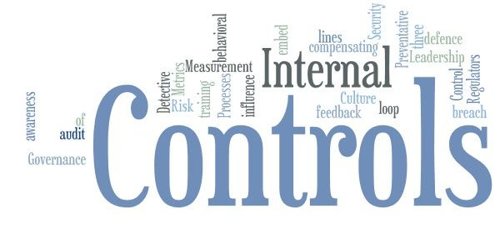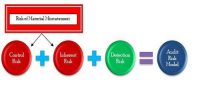Internal control: “An efficient system of control is established by the management in the conduct of mousiness including internal cheek, internal audit, and other forms of control”.
The whole system of internal check, internal audit and other forms of control, financial and otherwise established by management in order to carry on the business of the company in an orderly manner that safeguards its assets and secures as far as possible the accuracy and reliability of its records are called internal control.
According to Committee of Sponsoring Organizations –
“Internal Control is the process, effected by an entity’s board of directors, management, and other personnel, designed to provide reasonable assurance regarding the achievement of objectives in the following categories –
(a) Reliability of financial reporting,
(b) Compliance with applicable laws and regulations,
(c) Effectiveness and efficiency of operations.
The second generally accepted auditing standard of field work states that –
“A sufficient understanding of the internal control structure is to be obtained to plan the audit and to determine the nature, timing, and extent of tests to be performed”.
The importance of internal control management and independent auditors has been recognized in the professional literature for many years There are five noted internal control structure components.
This definition implies the following –
- The internal control is a system of controls.
- Controls are established over financial and nonfinancial areas.
- The mechanism of controls may itself in the forms of an internal cheek or internal audit or other forms.
















